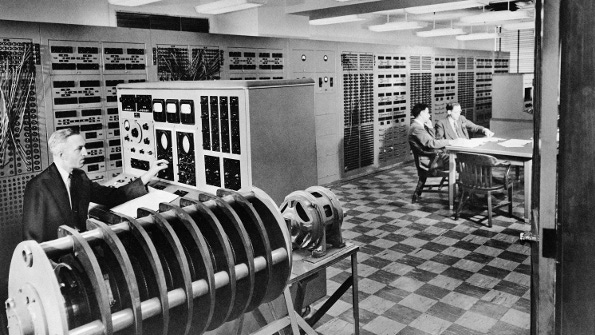Would the Internet exist if Linux did not? A video out this week from the Linux Foundation, which has launched a new campaign to promote open source, says no. History says yes.

Would the Internet exist if Linux did not? A video out this week from the Linux Foundation, which has launched a new campaign to promote open source, says no. History says yes.
The minute-long video is the first in a new series the Linux Foundation has created called "A World Without Linux." The series "flips reality on its head to illustrate in an entertaining fashion just how pervasive Linux is today," according to a Linux Foundation representative.
The first video in the series suggests that, in the absence of Linux, there would be no Internet. By extension, it says, finding basic information would be much harder.
Well, sort of, but not really. It's true that a lot of web, email and cloud servers that form the Internet today run Linux. But certainly not all do. The Internet would not go away if a secret time bomb inside the kernel code caused Linux to erase all traces of itself everywhere all of a sudden. (Not that we think Linus Torvalds has secret plots up his sleeve. He's already Linux's benevolent dictator for life, or something like that.)
Moreover, parts of the Internet—such as email and newsgroups�—were born decades before Linus Torvalds rolled out the Linux kernel code in 1991. The web, which is probably the most important part of the Internet for most people today, also predated Linux by a few years, and Linux remained nascent as the Web matured in the early 1990s. Linux did not host the world's first websites. Indeed, the Apache Web Server, which made Linux massively popular as a Web hosting platform, didn't appear until 1995.
To be sure, Linux played a much greater role in making the Internet possible than, say, Al Gore. But to assert that the Internet would not exist without Linux is a stretch. It existed before Linux, and if Linux disappeared, it would find something else to take its place—one of the BSDs, for example.
On the other hand, to say the Internet would not exist without open source—and the culture that spawned it—makes much more sense. Long before servers based on the Linux kernel were helping the Internet to grow during the 1990s, the Unix community's culture of sharing and openness spurred the adoption and standardization of early Internet protocols. The web would have been a tougher sell in the early 1990s if the Mosaic browser, through which millions of people viewed websites for the first time, wasn't available free of charge, with source code in certain situations. In the later 1990s, the combination of Linux and other free-software/open source tools from projects including Apache and GNU made it cheap and easy for more people to build websites and servers—but Linux on its own would not have been very useful to these people.
Maybe "a world without open source" would have been a better theme for the first Linux Foundation video. Of course, then the organization would have had to incur the wrath of people who take issue with "open source" and prefer "free software" instead. But we're not going there.
About the Author(s)
You May Also Like


